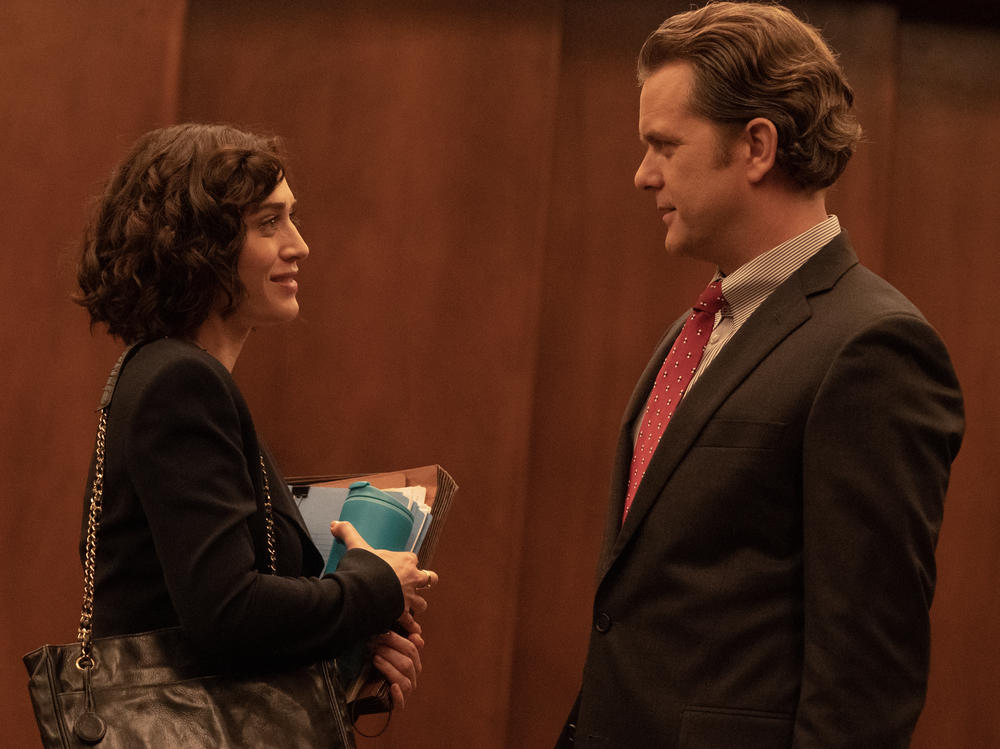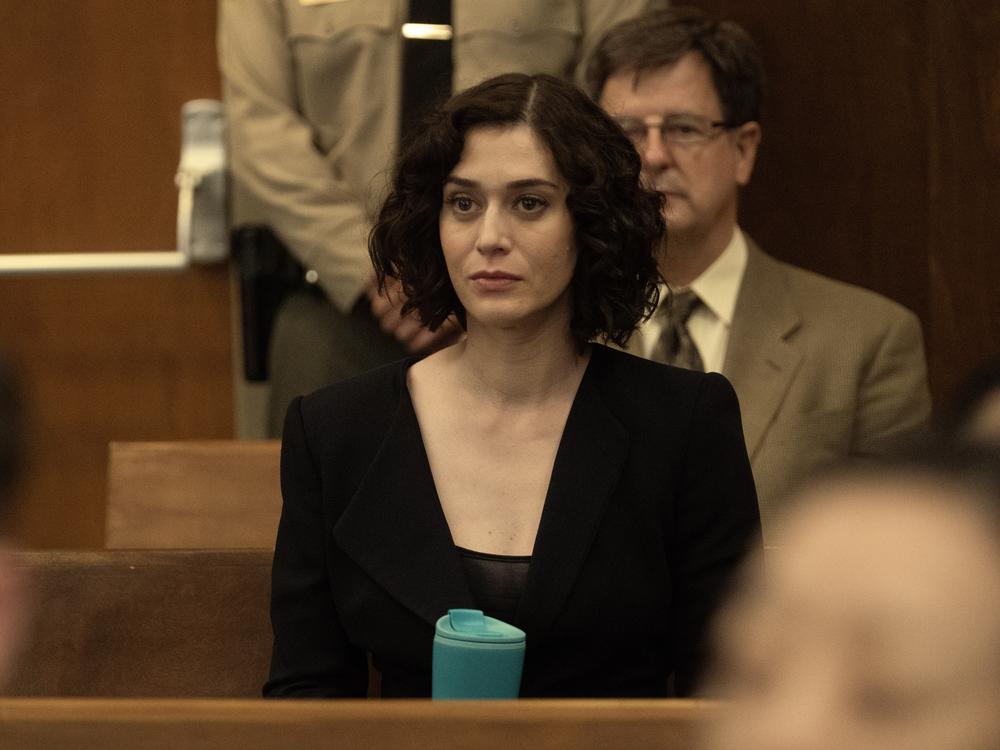Section Branding
Header Content
A new 'Fatal Attraction' is definitely aware of your critiques of the original
Primary Content
Fatal Attraction, Adrian Lyne's 1987 blockbuster that spawned an untold number of pre-Internet memes and feminist theory academic papers, ostensibly concludes with the hetero nuclear family restored to its "natural" state: The manic, very unwell homewrecker Alex Forrest (Glenn Close) has been shot dead out of self-defense by Beth (Anne Archer), the wronged wife of Alex's one-time fling Dan Gallagher (Michael Douglas). The final scene has police taking Dan's statement and an image of a family portrait of the Gallaghers with their young daughter.
But an eight-episode series "reimagining" of the movie, created by Alexandra Cunningham and premiering Sunday on Paramount+, wonders: What if things had gone differently? What if we better understood what drove Alex to become unhealthily obsessed with Dan? What if we got Beth's side of the story? What if Dan really had to atone for his affair gone awry?
So many "what ifs"; so little necessity for them to be answered in the form of an uninspired reheat.
Creatives attempting to modernize a fraught cultural touchstone often like to wield their primary source's outdatedness as a shield against critiques of unoriginality, to the point where it's become a full-on Hollywood cliché. Disney established an entirely new genre using this tactic, and plenty of other franchises have done it, too.
Fatal Attraction 2.0, which stars Joshua Jackson as Dan the family man who strays, and Lizzy Caplan as Alex the scorned and unwell woman, likewise tries really hard to mount an enlightened case for its existence. It opens in the present day, with a grizzled Dan up for parole after serving 15 years in prison for murdering Alex. (He's extremely contrite: "I chose to take her life ... I've come to atone," he tells the parole board.) It also moves the action away from Reagan-era New York into early Obama-era Los Angeles and juggles multiple timelines. (Because, of course, we must have a therapy-tinged understanding of our leads' troubled origins.)
And yet like so many others of its ilk, Fatal Attraction can't overcome the sense of reboot fatigue it inherently emits.
Dan's remorseful speech to that parole board is convincing enough, and he's back out in the world, ready to rejoin society and attempt to reconnect with his ex-wife Beth (Amanda Peet) and now college-aged daughter Ellen (Alyssa Jirrels), who was just a kid when all the chaos with Alex went down. But also he "didn't kill that woman," he will later insist, "and I'm going to prove it."
Ah, yes – it's worth noting that Fatal Attraction is also a procedural of sorts, as Dan attempts to clear his name with the assistance of his mentor and friend Mike Gerard (Toby Huss, bringing welcomed comedic relief), a retired detective. The other major plot thread in this web of deceit takes us back some 15 years earlier, as the script traces Dan's downfall from a respected criminal attorney to a convicted felon.
Jackson and Caplan are actually well-suited for what the creators seem to be going for; he's the ideal vessel for a version of Dan who embodies the hypocrisy of the "nice guy" (as opposed to the smarmy nature of Michael Douglas' performance) and she's great at rendering Alex's mental instability as subtler and more grounded than Glenn Close's interpretation. On paper, it checks off many of the progressive boxes: Dan's willingness to avoid consequences for his actions at any cost is scrutinized, the criminal justice system is (somewhat) critiqued, and Alex isn't outright dismissed as a "crazy" person.
It's unfortunate that the show relies so heavily upon wringing drama and suspense out of Alex's demise – perhaps a byproduct of our current era's obsession with crime and murder narratives. This being a miniseries rather than a tight two-hour drama, there's more time to sit with these characters (and many more) and get multiple versions of the same experiences, and yet that also means much of the runtime lacks the immediacy and chaotic energy that pulsated throughout the original film. (This is barely a spoiler, but no bunny is boiled, though Caplan's Alex does far more sinister things in her quest for Dan's affections. Nor is there an overwrought sex scene in an antique elevator – what little heat that is had between Dan and Alex will hardly satiate those who have complained about Hollywood's relative onscreen abstinence.) This isn't an erotic thriller so much as a mildly spicy murder mystery.
The show ultimately collapses under the weight of a convoluted reveal and an utterly preposterous ending that seems designed to serve as a cliffhanger for a possible second season – for what reason, I couldn't possibly tell you. That conclusion also completely undermines any modern sensibilities and empathy the show intended to bestow upon Alex throughout the previous seven episodes. By the time the credits rolled, all I could wonder was: What was the point of all of that?
As has been pointed out many times before – including by my colleague Linda Holmes – movies like Fatal Attraction make for an interesting experience partly because they so obviously emerge from larger collective anxieties of their time. In the case of the 1987 version, it played as a cautionary tale and did somewhat accurately reflect (and reinforce) a certain mainstream perspective about gender and sexuality, however sexist and conservative it was at the time. In 2023, it's hard to place what fears this new Fatal Attraction seeks to address. Maybe it's the fear of telling a story about a straight white guy facing the consequences of his actions without the safety net of an established IP. But that's hardly interesting.
Copyright 2023 NPR. To see more, visit https://www.npr.org.
Bottom Content



